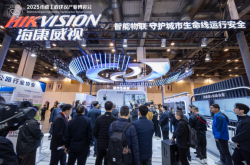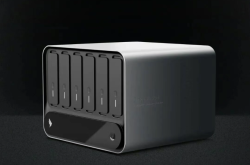Revenue grows, yet net profit plunges by 695.9%. What is Kunlun Tech gambling on?
![]() 11/11 2024
11/11 2024
![]() 671
671
Recently, Kunlun Tech released its third-quarter financial report for 2024.
In the third quarter, Kunlun Tech achieved operating revenue of RMB 1.327 billion, up 5.6% year-on-year. However, the company's net profit attributable to shareholders plummeted significantly, recording a loss of RMB 237 million, a year-on-year decline of 695.9%. The net loss after deducting non-recurring gains and losses was RMB 241 million.
This loss amount makes Kunlun Tech the top loser among listed gaming companies that have released their third-quarter financial reports, even surpassing Perfect World, which has recently been in the spotlight due to its loss of RMB 212 million in the third quarter.
This pattern of revenue growth coupled with a sharp year-on-year decline in profits has been the norm for Kunlun Tech since the beginning of 2024.
Since early 2023, Kunlun Tech, which started as a gaming business, has once again adjusted its strategic direction, clearly identifying "full investment in AGI and AIGC" as its core strategy, leading to a sharp increase in R&D expenditures.
In the first quarter of 2024, the company's financial report showed a slight decrease in revenue of 0.79% to RMB 1.208 billion, while net profit suffered a significant loss of RMB 187 million, a year-on-year decline of 188.38%. The net loss after deducting non-recurring gains and losses was RMB 194 million, a year-on-year decrease of 216.81%. This was the first quarterly loss for Kunlun Tech since its listing in 2015.
In the following six months, Kunlun Tech continued to intensify its layout in the AI field. In its first-half financial report this year, Kunlun Tech described seven AI businesses in over 6,000 words, including AI games, large models, music, search, short dramas, social media, and other services.
This was accompanied by comprehensive losses in the first three quarters of the year. For the first three quarters of 2024, Kunlun Tech achieved cumulative operating revenue of RMB 3.828 billion, up 4% year-on-year, but its net loss reached RMB 627 million, a year-on-year decrease of 290.81%.
Meanwhile, the company's R&D expenses surged to RMB 1.14 billion, up 84.5% year-on-year.
In subsequent conference calls, Kunlun Tech indicated that this gamble, regardless of losses, may continue.
AI: A genuine strategy or just a trend?
Earlier in late September, the A-share market experienced an unprecedented surge and plunge. Kunlun Tech, with a nearly 70% increase, solidified its position as the leader in the growth of A-share gaming stocks.
This shows that the combination of "internet companies + AI concepts" is indeed highly attractive to the market. However, this attractiveness is often accompanied by market concerns and doubts. Especially after the release of the third-quarter financial report, market discussions around Kunlun Tech focused on whether it is truly focused on developing the AI field.
This anxiety stems from multiple considerations.
First, Kunlun Tech and its leader Zhou Yahui have a history of frequently chasing market trends. Since its rise in 2008 relying on web game business, Kunlun Tech has long adopted a strategy that emphasizes both investment and gaming. Zhou Yahui's investment career is quite legendary; his first investment project, Qudian, brought him earnings of up to USD 1.64 billion, with an astonishing return on investment of 2186.66%. Since then, he has successfully invested in Inke (03700.HK), Ruhnn Holding (now delisted), and social media app Grindr, among others. Due to his ability to accurately identify unicorn companies, he is known as the "unicorn digger" in the industry.
However, this frequent trend-chasing investment style has also raised market doubts about whether the company is truly devoted to the industry. For example, when the metaverse concept gained popularity in 2021, Kunlun Tech quickly followed suit, vowing in its third-quarter financial report to accelerate its layout in the metaverse.
In contrast, the company's investment in the AI industry appears more substantial. The financial report data mentioned earlier clearly show the company's massive investment in AI R&D and the establishment of a diverse business matrix based on the Tiangong AI platform, covering AI large models, AI search, AI games, AI music, AI social media, AI short dramas, and other businesses. These businesses have not only achieved remarkable results but have also gained high visibility within the AI industry.
Specifically, according to the third-quarter financial report, Kunlun Tech has successfully launched multiple AI products globally.
In the field of AI short dramas, the company launched SkyReels, the world's first AI short drama platform integrating video large models and 3D large models, on August 19, 2024.
In AI gaming, the research and testing of self-developed games "Club Koala" and "Project G7" are progressing smoothly.
In the field of AI social media, the Linky platform continuously optimizes large language models, enhancing dialogue fluency and the depth of character interaction, receiving positive user feedback.
In AI music, Kunlun Tech released Melodio, the world's first AI streaming music platform, and Mureka, an AI music commercial creation platform, on August 14, 2024.
However, widespread development also means a lack of focus.
Tiangong AI's comprehensive layout across all popular sectors, rather than continuously meeting newly emerging market demands, is more reminiscent of a "casting a wide net" strategy in capital operations rather than focusing on in-depth development in a specific field.
Time is more critical than losses
Although Kunlun Tech has made extensive layouts in the field of artificial intelligence and achieved certain results, these achievements have not yet been effectively translated into business performance.
In 2024, the commercialization of AI technology has become a common challenge faced by the industry. In the first half of the year, multiple leading AI companies encountered difficulties: for example, Stability AI, which led the AI drawing trend with its open-source model Stable Diffusion, suffered a loss of over USD 30 million in the first quarter of 2024, saw its core R&D team resign, and sought acquisitions. Reka AI, a large language model startup that had received USD 58 million in funding and competed with Google and OpenAI, was also reported to be seeking a sale.
As market anxiety spread, large AI models in China have entered the "free model." Against this background, Kunlun Tech faces more severe profitability challenges due to its lack of focused investment. Although the company's share price surged by over 500% between January and May 2023 after announcing its entry into AI and continued to maintain a high level, the market will eventually shift its focus back to actual performance. If performance fails to materialize, the enthusiasm may fade, leaving behind a mess.
Kunlun Tech currently faces two major challenges: first, it needs to quickly launch AI products that can support its performance to verify the feasibility of its business model and stabilize market expectations; second, despite significant R&D investments in 2024, as a transforming enterprise, there is still a significant gap between its technological accumulation and industry leaders.
According to an IDC report, the market size of large model platforms in China was RMB 1.765 billion in 2023, with Baidu Intelligent Cloud, SenseTime, and Zhipu AI ranking in the top three, respectively. Although Kunlun Tech claims to be "All in AGI and AIGC," it fails to secure a place on this list, putting it in an awkward position.
For Kunlun Tech, time is more critical than short-term losses.
Therefore, the company increased its R&D investments despite incurring losses in 2024. However, most of the AI products launched by Kunlun Tech, such as the AI short drama platform SkyReels released in August this year, though highly anticipated by the market before its release for its "cross-era" concept, claiming to integrate script generation, character customization, shot division, plot, dialogue/BGM, and video synthesis into one platform.
With just a simple idea input, SkyReels can complete the entire process from script to finished short drama, allowing creators to "produce dramas with one click" and easily create high-quality AI videos.
However, the market response was lukewarm after the actual beta test. Some users told Mouyu that SkyReels' "one-click drama production" feature does address the pain point of creators needing to switch back and forth between multiple models when creating AI videos. The core issue is that the videos generated by SkyReels seriously lack realism, and their quality fails to meet creators' needs.
In the next stage, Kunlun Tech's noteworthy AI products will focus on the gaming field.
The company is developing multiple AI games, including "Club Koala" and "Project G7." "Club Koala" is an AI-based UGC social game that combines elements of "Party Animals" and "Animal Crossing," offering commercial, amusement, and private areas, as well as a rich AI game editor and social mechanism. "Project G7" focuses on the AI-driven "open-world" genre, allowing players to freely explore towns and experience diverse interaction methods.
Currently, "Club Koala" has entered the Alpha testing phase and is expected to enter the Beta testing phase in October 2024. However, as competition in the AI sector intensifies, Kunlun Tech's time window is shrinking. If the company fails to achieve breakthroughs in the AI field and drive revenue growth, it may face the risk of being eliminated by the market.




